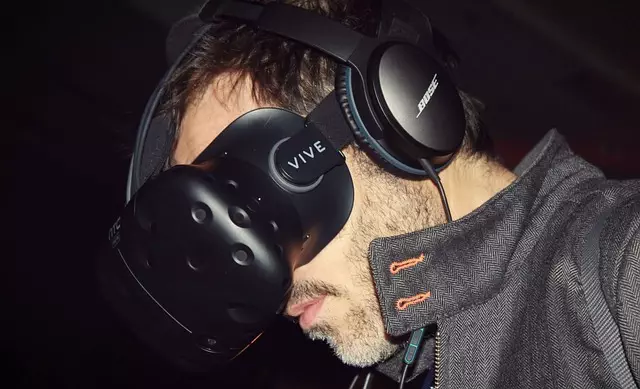Virtual therapy sessions have revolutionized mental health care, offering unprecedented accessibility and convenience for both patients and therapists globally. Driven by digital solutions, these sessions connect individuals from home, providing flexibility, privacy, and engaging conversations via video conferencing or text-based platforms. Beneficial for remote areas or limited mobility, virtual therapy breaks down geographical barriers, ensuring access to essential mental health services. With advanced encryption and user-friendly interfaces, the right platform maintains security and enhances interaction, fostering a strong therapeutic alliance. While presenting challenges like data privacy and digital accessibility, virtual therapy has proven effective, offering tailored approaches like cognitive-behavioral therapy and mindfulness practices. The future of mental health care leans increasingly digital, with expectations for further advancements in technology and personalized treatments through virtual reality and AI-driven tools.
In today’s digital era, the rise of online mental health support through virtual therapy sessions has revolutionized access to care. This article explores this modern approach, delving into its benefits, from enhanced accessibility and convenience to various platform types for secure sessions. We navigate challenges, ethical considerations, and success stories, highlighting the growing impact of virtual therapy. Additionally, we discuss integration with traditional face-to-face methods and future prospects, offering insights into the evolving landscape of mental health services.
The Rise of Virtual Therapy Sessions: A Modern Approach to Mental Health Care

In recent years, the landscape of mental health care has undergone a significant transformation with the rise of virtual therapy sessions. This modern approach has become increasingly popular due to its accessibility and convenience for both patients and therapists alike. The global shift towards digital solutions, especially in today’s fast-paced world, has made it possible to connect individuals seeking support with qualified professionals from the comfort of their homes.
Virtual therapy sessions offer a range of benefits, including flexibility, reduced travel time, and increased privacy. Through video conferencing, patients can engage in therapeutic conversations as if they were in a traditional face-to-face setting. This innovative method has proven to be particularly beneficial for those who live in remote areas or have limited mobility, ensuring they still have access to much-needed mental health care services.
Benefits of Online Mental Health Support: Accessibility and Convenience

Online mental health support has revolutionized access to care, offering a convenient and accessible alternative to traditional in-person therapy. With virtual therapy sessions, individuals can now connect with licensed therapists from the comfort of their own homes, breaking down geographical barriers that have historically limited access to mental health services. This accessibility is particularly beneficial for those living in remote areas or facing transportation challenges, enabling them to receive much-needed support without navigating long commutes or waiting lists.
Convenience also plays a significant role in the success of online therapy. Flexible scheduling options allow clients to book sessions at times that align with their personal and professional commitments, fostering a sense of control and autonomy. Moreover, digital platforms often provide a safe and private space for individuals to openly discuss their struggles, knowing that their information is protected through advanced encryption technologies. This enhanced comfort can encourage more honest self-reflection and deeper exploration of emotional well-being.
Types of Virtual Therapy: Video Calls, Chat, and More

In today’s digital era, online mental health support has become increasingly accessible through various forms of virtual therapy sessions. One of the most common and widely used methods is video call therapy, enabling face-to-face interactions between therapists and clients over a secure video platform. This approach mimics traditional in-person therapy while offering flexibility and convenience, especially for individuals with limited mobility or those living in remote areas.
Beyond video calls, text-based chat platforms also facilitate virtual therapy sessions. Chat therapy provides a more discreet and asynchronous option, allowing clients to communicate their thoughts and concerns at their own pace. Additionally, some platforms offer instant messaging features, enabling quick support and crisis intervention. These diverse formats cater to different preferences and needs, ensuring that individuals can access the care they require in a way that suits them best.
Finding the Right Platform for Secure and Effective Sessions

Choosing the right platform for virtual therapy sessions is crucial for ensuring secure and effective interactions between clients and therapists. Look for platforms that employ robust encryption protocols to safeguard sensitive information shared during sessions. Features like video call quality, screen sharing, and live chat options can also enhance communication and engagement in online therapy.
Additionally, consider platforms with user-friendly interfaces designed to foster a comfortable and supportive environment. Some platforms offer additional tools such as mood trackers, meditation guides, or online resources that can supplement the therapeutic process. Selecting a platform aligned with your therapist’s practice style and your specific needs is key to reaping the most benefit from virtual therapy sessions.
Building a Therapeutic Alliance in a Digital Setting

In the realm of online mental health support, building a therapeutic alliance within a digital setting is paramount for successful virtual therapy sessions. This involves fostering an environment of trust, empathy, and open communication between therapist and client, despite the lack of physical presence. Through effective use of video conferencing tools, therapists can create a safe space where clients feel heard and understood, mirroring the rapport built in traditional in-person therapy.
The therapeutic alliance is reinforced by clear expectations setting, active listening, and regular check-ins during virtual sessions. Therapists should also adapt their communication styles to suit the digital medium, ensuring that non-verbal cues are interpreted accurately. By prioritizing these aspects, online mental health support can provide just as effective care as in-person therapy, making virtual therapy sessions a game-changer for accessibility and convenience.
Challenges and Ethical Considerations in Online Mental Healthcare

The rise of online mental health support has been a game-changer, providing accessibility and convenience for many seeking help. However, navigating this digital landscape presents unique challenges. One significant concern is ensuring the privacy and security of patient data during virtual therapy sessions. As more individuals opt for remote care, the potential risks of data breaches or unauthorized access to sensitive information grow. Additionally, establishing a therapeutic alliance in a virtual setting can be different from traditional face-to-face interactions, requiring practitioners to adapt their approaches to maintain effective communication and build trust.
Ethical considerations also come into play, particularly when dealing with diverse patient populations. Cultural sensitivity is paramount as online platforms may not account for all regional variations and language barriers. Furthermore, the digital divide—the gap between those with access to technology and internet connectivity—can exclude certain demographics from receiving timely mental health services. Addressing these challenges involves continuous innovation in cybersecurity measures and a commitment to make virtual therapy sessions accessible and inclusive for everyone who needs them.
Success Stories: Real-Life Impact of Virtual Therapy Sessions

In the digital age, online mental health support has emerged as a powerful tool, transforming the accessibility and convenience of therapy. The success stories from virtual therapy sessions are numerous, showcasing their profound impact on individuals seeking help. Many clients report significant improvements in their mental well-being, attributing this to the comfort, flexibility, and anonymity that these sessions offer.
Virtual therapy allows people to access professional support from the comfort of their homes, breaking down geographical barriers. This innovative approach has been especially beneficial for those with limited mobility, living in remote areas, or facing challenges such as social anxiety. The ability to connect one-on-one via video conferencing creates a safe and intimate environment, fostering open communication. As a result, clients often experience improved engagement, enabling them to work on their mental health goals at their own pace. These success stories highlight the potential of virtual therapy sessions in revolutionizing access to care and offering lasting positive outcomes.
Integrating Online Support with Traditional Face-to-Face Therapy

In today’s digital era, online mental health support has become an increasingly popular and accessible option for many individuals seeking therapy. Virtual therapy sessions offer a convenient and flexible alternative to traditional face-to-face meetings, breaking down geographical barriers and providing much-needed support to those who may face challenges attending in-person appointments. This integration of online support with conventional therapeutic practices has proven to be a game-changer, especially for folks with busy schedules or those living in remote areas.
The benefits of virtual therapy sessions are vast. It enables clients to connect with therapists from the comfort of their homes, fostering a sense of accessibility and confidentiality. Furthermore, online platforms often offer a wide range of therapeutic approaches, including cognitive-behavioural therapy, mindfulness practices, and support groups, all tailored to individual needs. This diverse tapestry of services ensures that people can receive specialized care, enhancing their overall well-being and promoting positive mental health outcomes.
Future Prospects: The Evolving Landscape of Virtual Mental Health Services

The future of mental health support looks increasingly digital, with virtual therapy sessions becoming a prominent feature in the evolving landscape of healthcare. As technology advances and acceptance grows, online platforms offer accessible, convenient, and often affordable alternatives to traditional face-to-face therapy. The pandemic accelerated this trend, but its benefits are now widely recognized, especially for individuals in remote areas or those facing barriers to accessing in-person services.
Virtual mental health services are expected to continue refining and diversifying, incorporating innovative techniques such as virtual reality exposure therapy and AI-driven chatbots. This growth will likely lead to more personalized treatments, improved patient engagement, and better outcomes. Additionally, increased interprofessional collaboration through digital tools can enhance holistic care, ensuring patients receive comprehensive support tailored to their unique needs in this dynamic digital age.



